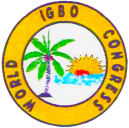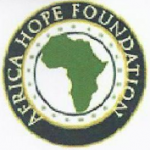WFAC
WIC WFAC AND THE ALLEVIATION OF THE CIRCUMSTANCES OF IGBO WOMEN AND CHILDREN
The 58th session of the Commission on the Status of Women (CSW)
World Igbo Congress is dedicated to unification of Igbo race of Nigeria and promote their welfare with focus on the common needs of people welcome the 58th session of the Commission on the Status of Women (CSW). World Igbo Congress considered the priority theme on: “the challenges and achievements in the implementation of the Millennium Development Goals (MDGs) for Women and Girls” and the review theme: “access and participation of women and girls to education, transportation, science and technology, including equal access to full employment and decent work and the global development agenda” as great concerns to Igbo women and girls in particular and the worlds women and girls as a whole.
Rights and justice for women and girls in Igbo land
Since the formation of World Igbo Congress, we have taken stride on stringent issues concerning Igbo women and girls and significantly facilitated initiatives and campaigns on rights and justice on women and girls within the seven Igbo speaking states of Nigeria and in Diaspora. World Igbo Congress have called attention of governments of the seven Igbo speaking states, Traditional Rulers and legislation to the importance of recognizing full realization of Igbo women’s rights - economic, social, health, cultural, legislative and civic in all spheres of human endeavor within the Igbo race. Since the release of the outcome on the Commission of Status of Women 57 session on Elimination and Prevention of Violence against Women and Girls, the Department of World Igbo Congress Women Affairs, Women and Family Affairs Committee has relentlessly advocated and provided awareness education on the outcome document to the traditional rulers, men and boys of Igbo race and enacted the initiative campaign on Better Woman Better Family in reminding the present day Igbo race of the position of Igbo ancestors on women and girls in the community.
Considering the eight Millennium Development Goals, the challenges and achievements, World Igbo Congress noted with great concerns that positive work has been done to achieve successes in spite of the challenges impinging on human understanding, diverse culture and economic barriers. From goal one through goal eight, rights of women and girls who are harbingers of the successes and challenges on these goals remains the target groups of World Igbo Congress.
Reviewing these on goals, reports have indicated that;
-
Millennium Development Goal 1 on eradication of poverty has noted that great percentage of women have been empowered with resources to overcome poverty. There is however an increased percentage on the world of works for women globally
-
Millennium Development Goal 2: Literacy rates have successfully increased with increased percentage of women achieving education more than men
-
Millennium Development Goal 3: Various initiative and campaigns have been put in place to address promotion of gender equality and empower women
-
Millennium Development Goal 4: From 2000 to date, there have been committed efforts globally to reduce child mortality rate across the world
-
Millennium Development Goal 5: reports indicated there have been improved accesses to reproductive health including unmet needs and family planning with reduction on maternal mortality deaths and improved number of health skilled workers.
-
Millennium Development Goal 6: Knowledge about HIV/AIDS, treatment and medication have increased and greater percentage of the population have more knowledge on prevention and treatment measures on malaria and tuberculosis
-
Millennium Development Goal 7: Sustainable development programs and principles have been integrated into national policies and laws
-
Millennium Development Goal 8: Global interests on market, trade, technologies and information as well unemployment issues have received various forms of global partnerships.
In spite of these successes, World Igbo Congress notes that achievements rates of these goals have been very low among grassroots women and girls. Women and girls are still subjects to the implications of extreme poverty, many girls out of school and forced into early marriage, rape and violence. Married women are exposed to sex business in order to meet with daily living thereby contacting HIV/AIDS. Most women in the rural communities still die in child birth as these communities lack sufficient health skill workers and resources. As we believe on the much reported achievement since the Millennium Development Goals in year 2000, the impact and successes of these goals are yet to be fully received by communities of rural dwellers on women and girls. Women and girls in rural communities of the seven Igbo speaking states are exposed to hardship, poor health environmental situations, early marriages, lack sustainable growth and have no opportunity for partnerships on their trade or skills. A good percentage of the girls who have interest in education, science and technology are denied because of poverty. This hindered sustainable development, impinges on the future we want for Igbo women, girls and human rights.
Human Rights, Millennium Development Goals, Women and Girls
The Millennium Development Goals since the creation in year 2000 has provided the world a dramatic change which has touched pertinent issues affecting human life. The global financial crisis , promotion of poverty policies and reduction in extreme poverty, dealing with extremities in government budget have led to the erosion of economic, social and human rights for the world. As a result of the existing living crisis, in most part of the world especially in rural communities, women and girls from low income families depend on provided support services where they exist and subject to other alternatives where such support services and food assistance strategies do not exist in order to survive. The governments have failed to implement key regulations and institutions and this have affected women, girl’s rights and human rights obligation.
Women and girls are eroded into cultural policies that are not addressed by Millennium Development Goals and affect their human rights frameworks. Millennium Development Goals offer stringent methods to access relevant development strategies for women and girls as basic education, gender equality and women’s empowerment, women’s health, women’s participation on decision, legislation and leadership roles. Advancing the rights of women and girls advances humanity; women and girls experience marginalization, discrimination, more vulnerable to exploitation and challenged human rights. Again, women’s rights and access to land ownership, mobility education, and economic rights are limited due to barriers as work load, mobility and low bargaining position in the household and community which prevent them from taking advantage of their right as citizens of the community. Early marriage, poor health services, high rates of maternal mortality, HIV/AIDS, lack of education and recognition of grassroots women potentials practices culturally affects rights of women and girls impeding on world recognition of the importance of gender equality.
Post 2015 Sustainable Development Agenda:
Critical review of the eight Millennium Development Goals posits that concerns on women and girls have not been fully achieved especially on women and girls in rural settings. Igbo women and girls in the communities of the seven Igbo speaking states experience the impact of the overall weakness of the eight goals. Referring to the report of Eminent Persons to Secretary General, Mr. Ban Ki Moon on “Leave no one Behind” in the Post 2015 Agenda , contributions from Governments, international community, civil society and private sector have to be put in place to ensure that concerns of every woman and girl are made priority. Positive efforts should be made to accelerate action, scale up what works from the lessons learned on Millennium Development Goals with focus on reducing inequalities on many fronts such as improving food security, maternal health, water and sanitation, rural development, nutrition education, employment, basic services, economic opportunities and decision making at all levels has proven to be powerful drivers of sustainability and elements of human rights for women and girls.
Resolutions:
Reviewing the outcome of Commissions on Status of Women 55 session and considering the priority theme for Commission on the Status of Women 58 Session, World Igbo Congress in the action call to Commission on Status of Women58 Session Bureau, Member states governments resolve to the following:
-
Women and Girls should be provided with respect, protection, and full human rights
-
Women and Girls in the rural communities and vulnerable situations should be provided with adequate resources to existence and full human rights
-
Commission of Status of Women 58 session should include in their outcome document the concerns of the forgotten groups of women such as rural poor women, vulnerable women, Women Living with HIV/AIDS, women in single-parent and non-parent situations for inclusion in the Post 2015 agenda
-
Noted that certain cultural policies and rights impinging on communal rights of women and girls should be brought to table in pursuant of women’s rights, security and protection
-
Attention should be given to potentials women in world of science and technology from low income families and opportunity created for them to explore their potentials on science , technology, engineering and mathematics
-
Governments of Member states should be informed of the need to establish Millennium Development Goals awareness centers in rural communities to ensure adequate outreach on the mission of the goals for women and girls
-
There should be significant measures to promote women’s empowerment in the labor market and labor rights to address positive earnings.
Copyright World Igbo Congress 2016 by extraCoding








